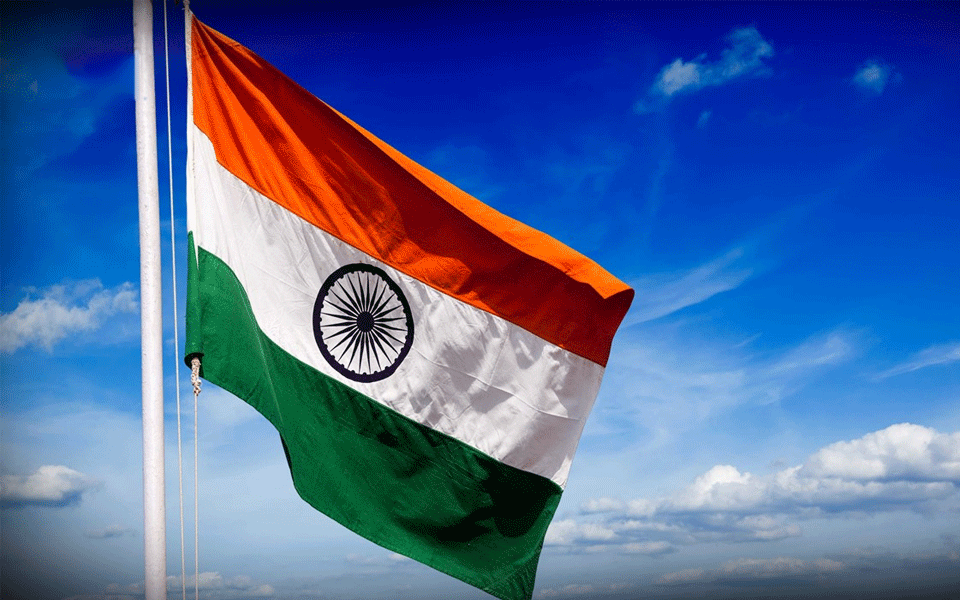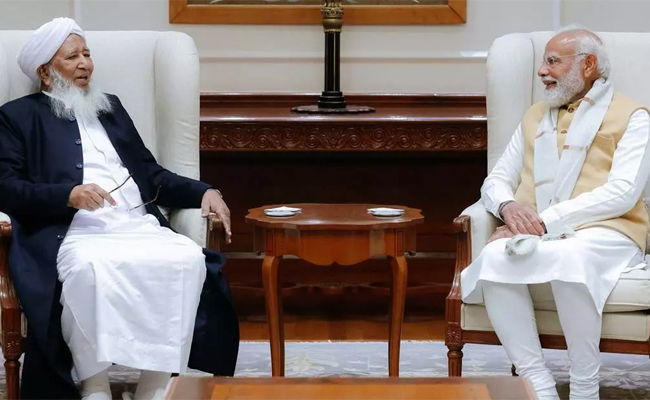Davos, Jan 21: India is among the most trusted nations globally when it comes to government, business, NGOs and media but the country's brands are among the least-trusted, according to a report.
The The 2019 Edelman Trust Barometer report released Monday, ahead of the the World Economic Forum (WEF) meet here, noted that the Global Trust Index witnessed a marginal increase of 3 points to 52.
China topped the Trust Index among both the informed public and the general population segments, with scores of 79 and 88 respectively.
India was at the second place in the informed public category and third place in the general population category.
The Index is the average per cent of trust in NGOs, business, government and media.
The findings are based on an online survey in 27 markets covering over 33,000 respondents. The fieldwork was conducted between October 19 and November 16, 2018.
In terms of trust in companies headquartered in each market, the most trusted are those from Switzerland, Germany and Canada. The brands from these countries have a trust score of 70 each while that of Japan is 69 per cent.
However, companies headquartered in India, Mexico and Brazil are the least trusted, followed by China and South Korea, as per the report.
While the score of India and Brazil is 40 per cent, that of Mexico and China stood at 36 per cent and 41 per cent, respectively.
The report noted that there is a growing feeling of pessimism about the future, with only one-in-three mass population respondents in the developed world believing his or her family would be better off in the next five years.
Among the mass population, just one-in-five believe the system is working for them and 70 percent desire change. And despite a full-employment economy, fear of job loss remains high among the general population.
This is based on views of respondents about global companies headquartered in specific countries and how much these firms are trusted by them 'to do what is right'.
According to the report, globally 'my employer' is significantly more trusted than NGOs, business, government and media.
"The last decade has seen a loss of faith in traditional authority figures and institutions," said Richard Edelman, president and CEO of Edelman.
When it comes to reliable sources for news, search and traditional are among the most trusted. Search and traditional media have a score of 66 each, while the score of social media is 44 per cent, the report noted.
"73 per cent worry about false information or fake news being used as a weapon," it added.
Stephen Kehoe, global chair, Reputation at Edelman said that divergent levels of confidence between the mass population and informed public about the future signal a continued underlying rot in the structure of society.
"While not everyone is taking to the streets, the data shows why protests like the Gilet Jaunes in France, the women's marches in India and walkouts by employees at some major tech companies could become more mainstream," Kehoe said.
Let the Truth be known. If you read VB and like VB, please be a VB Supporter and Help us deliver the Truth to one and all.
New Delhi (PTI): Star batter Smriti Mandhana, who played a pivotal role in India's historic 2025 Women's World Cup triumph, was named the BBC Indian Sportswoman of the Year for 2025 at a glittering function here on Monday.
Chess prodigy Divya Deshmukh won the Emerging Player of the Year award, for her historic FIDE Women's World Cup triumph at just 20.
Preethi Pal was named the Para-Sportswoman of the Year, for winning two bronze medals at the 2024 Paris Paralympics in track and field, while Anjali Bhagwat was honoured with the Lifetime Achievement Award, recognising her pioneering career as India's first woman shooter to reach an Olympic final and her trailblazing success on the world stage.
Mandhana, who is currently touring Australia with the Indian team for multi-format bilateral assignments, said in a video message: "Thank you BBC for giving me the awardfor Best Sportswoman of the Year. 2025 was a special year for women's cricket, especiallytowards the end we had a World Cup and I'm happy I could contribute and help India win matches.".
At 29, the left-handed batter is already among the game's greats, with the second-highest number of centuries in women's One Day Internationals and ranking third in total runsscored among current players worldwide.
Hailing from Sangli city in Maharashtra, the affable Mandhana was inspired by her father and brother, both of whom played cricket at the district level.
In September last year, she made a 50-ball hundred against Australia – the fastest 50 over international ton (men and women) by an Indian in the format, breaking Virat Kohli's record.
The award winners were decided by a distinguished grand jury comprising Leander Paes, Deepa Malik, and Anju Bobby George.
Praising the athletes' achievements CEO of BBC News, Jonathan Munro said: "Congratulations to this year's winners who showcase the very best in sporting excellence. The BBC World Service is committed to bringing such stories of human endeavour and outstanding success to audiences across India and around the world.".
Additionally, the ceremony also celebrated a wide spectrum of talent and impact, recognizing star performers and changemakers for redefining the landscape of Indian sport.
BBC Star Performers of the Year 202.
• Indian Women's Cricket Team: for their historic World Cup victory.
• Ekta Bhyan, Deepthi Jeevanji and Preethi Pal: for their trailblazing performances at the World Para Athletics Championship.
• Indian Women's Cricket Team for the Blind: for their inspiring World Cup victory.
• Indian Women's Kabaddi Team: for their smashing victory in World Cup.
.
BBC Changemakers of the Year 202.
• Indian Women's Ice Hockey Team: for breaking barriers in a non-traditional sport.
• Rajbir Kaur: Indian field hockey player and former captain of the women’s national team.
• Savita Punia: Indian field hockey player and current member of the national team.
• Paani Devi: recognised for her impactful contribution to grassroots sport.





